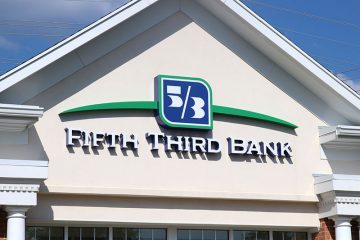Don't Click Anything In The World Bank Group - Overdue Payment Email Scam

Table of Contents
A Deceptive Email Disguised as Official Communication
The "World Bank Group Overdue Payment" email scam is a deceptive phishing attempt where scammers impersonate the World Bank Group, claiming to offer relief compensation for recipients. In this scheme, the email informs recipients that they are due for a significant sum of money as part of a "relief fund." This lure seeks to create a sense of urgency, convincing recipients to share personal details or pay fees. Though appearing official, with the World Bank Group name and references to "confirmed overdue payments," these messages are entirely fraudulent.
The Relief Fund Hook: Enticing Large Sums to Attract Attention
This scam claims that recipients have been selected for a $4.5 million compensation payment under a fictional relief program. The email mentions "Mrs. Emily Abdellatif" as a representative to contact, creating a false sense of legitimacy. Victims are asked to submit personal details—such as name, date of birth, address, and phone number—under the guise of "claiming" these funds. However, this is a classic tactic to lure individuals into disclosing sensitive information, which can then be used for identity theft or other criminal activities.
Fake Reference Numbers and Email Addresses to Appear Legitimate
To make the email appear more convincing, the scammers include reference numbers, fake contact details, and even fabricated photos of supposed beneficiaries. Scammers often use such details to mimic the look and feel of official correspondence, with references to fabricated email addresses like "collectorcla0022@gmail.com" or "reswads5@outlook.com." Although these additions can make the message seem legitimate, they are clear indicators of a scam.
Here's what the fraudulent email looks like:
WORLD BANK GROUP
Head office: The World Bank Group
Washington, DC 20433 United States
Customer Ref: WBGUST647TDHFOREIGN EXCHANGE UNIT
CREDIT SECTION FUND MONITORING AND AUTHORISATION DEPARTMENT
CONFIRMATION OF OVERDUE PAYMENTAttn: Active Email Beneficiary.
RE: Approved On-Hold Fund of $4,500,000.00This message serves to inform you that the joint agencies with the Board of Directors of the World Bank Group and the Chase Bank with Department of the Treasury of the United States have finally concluded an arrangement towards the approval of On-Hold, Covid-19 Relief Fund, Contracts, Investment, Lotto and Inheritance Funds in financial support to individuals and private sector due to current World economic crises to help eradicate poverties and boost businesses in societies through active email address as the key identification for setting up online accounts with all valid email addresses in the Worldwide.
Your active email address has been selected and listed among the 10 Million active email address in our database on first 5,000 people to benefit from the Relief Compensation Funds approved in tune of US$4,500,000.00 (Four Million Five Hundred Thousand United States Dollars Only) Moreover, due to lack of cooperation and communicating with Bank officials, the Relief Compensation funds has kept Unpaid till date, in view to this, The World Bank Group in conjunction with the Chase Bank and Department of the Treasury, United States has agreed to release all the On-Hold funds immediately to the beneficiaries allocated at this first category without further delay since we are at the end of the financial year 2024.
NOTE; You will receive your payment from our authorized paying Bank through Bank to Bank transfer OR Certified International Unlimited Debit Master/Visa Card.
Therefore, we advise you to contact our Regional claim representative officer immediately and reconfirm your details below to enable our authorised paying bank to release the relief compensation fund of US$4,500,000.00 (Four Million Five Hundred Thousand United States Dollars Only) due for you. Name: Mrs Emily Abdellatif Email:
collectorcla0022@gmail.com / reswads5@outlook.com / collectorcla0022@usa.comKindly quote the payment Reference.No: WBCBOEHMTUS57856
Your Full Name:
Occupation:
Country of Origin:
Home address:
Date of Birth:
Sex:
Tel No:
Relief Compensation Amount:Congratulations.
Sincerely Yours,
Mr Jun Anthony
Director Relief Compensation Fund
The World Bank Group.
The Hidden Dangers of Sharing Personal Information
If recipients follow through and submit their information, they may soon face consequences ranging from identity theft to other fraudulent schemes. Scammers often ask for banking details or small "administrative fees" to process the payment. However, these are only pretexts for draining victims' accounts. Sharing sensitive information could give scammers access to bank accounts or even enable them to open accounts in the victim's name, creating far-reaching financial harm.
The False Promise of Easy Wealth: A Telltale Sign of Scams
Emails promising large amounts of money are common in phishing scams, as the lure of "free money" is highly effective. Scammers often go to great lengths to create believable messages, including using logos, official-sounding language, and personal appeals to evoke trust. However, legitimate institutions like the World Bank Group do not contact individuals with unsolicited offers of money or request personal information over email. Staying vigilant against such tactics can prevent costly mistakes.
Recognizing Other Common Phishing Scams
The World Bank Group Overdue Payment Scam is one example of many phishing schemes promising unrealistic financial rewards. Similar scams include emails titled "COVID - Sick and Family Leave Act," "Donation to Charity," or "Unclaimed Insurance." The common thread in these scams is their use of promises for financial compensation, inheritance, or other rewards to entice recipients into sharing personal information or transferring money. Being aware of these tactics can help individuals spot and avoid potential scams.
Email Links and Attachments: How Scammers Distribute Malware
Phishing emails like these often contain links or attachments, which may also deliver malware. When clicked, these links can direct users to malicious sites where malware downloads automatically or prompt users to download files laced with harmful code. Attachments may include infected documents, scripts, or executable files that install malware when opened. Some files, such as Microsoft Office documents, only activate malware when users enable macros. Clicking these elements can compromise your device's security, resulting in data loss, system vulnerabilities, or unauthorized access.
How to Protect Yourself from Phishing Scams and Malware
Adopt safe browsing habits to avoid falling victim to phishing emails or malware. Avoid opening attachments or clicking links in unsolicited emails, especially if they're from unfamiliar addresses. Download software from trusted sources or official app stores, and steer clear of cracked software, key generators, and pirated content. Scammers often rely on users lowering their guard, so a cautious approach is crucial when dealing with unsolicited communications.
Bottom Line
Phishing scams like the World Bank Group Overdue Payment scheme exploit the promise of financial rewards to mislead recipients. By recognizing the warning signs—such as unsolicited offers, requests for personal details, and unfamiliar email addresses—users can protect themselves from identity theft, malware, and other risks. Staying cautious online and verifying the legitimacy of communications can help prevent financial and personal harm.








